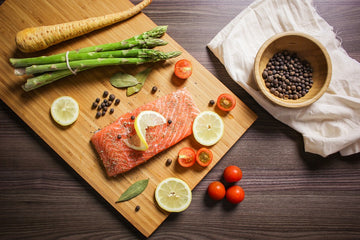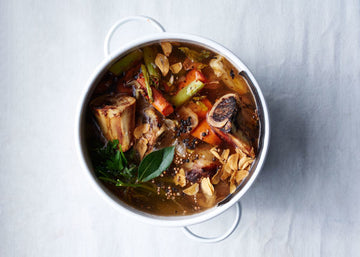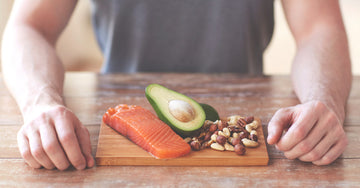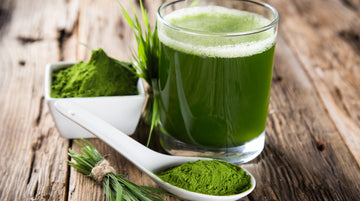Food
Why You Need Fat In Your Diet

Despite what every consumer magazine and health food manufacturer tries to tell you, you need fat in your diet. Grocery store aisles are populated by low-fat products but cutting out fat completely isn’t the best way to get the body of the dreams. In fact, when your fat intake is low, it can work against your fitness goals.
Fat is one of the body’s greatest energy sources. Compared to protein and carbohydrates, fat offers more calories per gram. 9, to be exact. Each gram of protein and carbs has 4 calories. Additionally, fat helps your body absorb critical vitamins like A and E. It’s one of the body’s transporters, helping move nutrients to the cells that need them. And though many sources want to steer you away from fat, it’s a great mechanism for controlling your appetite. Fats hang around in your tummy a little longer, helping you feel satiated. This means you’ll avoid excessive snacking.
On a less technical note, fat adds flavor to our food. Think of healthy fat sources like salmon or avocado. These foods taste great with seasoning but pack in tons of natural flavor on their own. You have fat to thank for that. Fat always works to keep our bodies warm and helps our nerve fibers communicate with the rest of our body (also known as movement).
Fat is incredibly important. So why are so many people trying to force you to abandon it?
 Well, there are good fats and bad fats. And in an effort to move consumers away from bad fats, they’ve mistakenly taught them to avoid it altogether. Monounsaturated and polyunsaturated fats are the good fats you need. They’ve both been shown to reduce the amount of LDL cholesterol in the bloodstream and maintain a healthy ratio between LDL and HDL cholesterol levels. You’ll find monounsaturated fat in red meat, grains and peanuts. Polyunsaturated fats are in fish and chicken.
The bad fats are saturated fats and trans fats. Saturated fats raise your LDL levels, and you’ll find them in your favorite junk foods like pizza and candy bars. Trans fats, the most dangerous, are formed via an artificial process called hydrogenation. They can raise LDL levels as well. Both bad fats contribute to heart disease. It’s best to avoid trans fat at all costs and limit your saturated fat intake. Focus your efforts on both types of unsaturated fat.
But don’t try to cut out fat entirely. For starters, your diet will be pretty boring and flavor-free. You’ll also find that you’re hungry more often (which leads to bad nutrition decisions), your skin is dry, your body temperature fluctuates and you’re less capable of concentrating. When you cut back the fat too much, you put your body and your mind at risk.
If you feel like this is too much to remember, start logging your caloric intake in an app like MyFitnessPal, which breaks down the types of fat you’re consuming.
All things are good in moderation. However, if your fat consumption drops too low, you’ll end up putting yourself in danger.
Well, there are good fats and bad fats. And in an effort to move consumers away from bad fats, they’ve mistakenly taught them to avoid it altogether. Monounsaturated and polyunsaturated fats are the good fats you need. They’ve both been shown to reduce the amount of LDL cholesterol in the bloodstream and maintain a healthy ratio between LDL and HDL cholesterol levels. You’ll find monounsaturated fat in red meat, grains and peanuts. Polyunsaturated fats are in fish and chicken.
The bad fats are saturated fats and trans fats. Saturated fats raise your LDL levels, and you’ll find them in your favorite junk foods like pizza and candy bars. Trans fats, the most dangerous, are formed via an artificial process called hydrogenation. They can raise LDL levels as well. Both bad fats contribute to heart disease. It’s best to avoid trans fat at all costs and limit your saturated fat intake. Focus your efforts on both types of unsaturated fat.
But don’t try to cut out fat entirely. For starters, your diet will be pretty boring and flavor-free. You’ll also find that you’re hungry more often (which leads to bad nutrition decisions), your skin is dry, your body temperature fluctuates and you’re less capable of concentrating. When you cut back the fat too much, you put your body and your mind at risk.
If you feel like this is too much to remember, start logging your caloric intake in an app like MyFitnessPal, which breaks down the types of fat you’re consuming.
All things are good in moderation. However, if your fat consumption drops too low, you’ll end up putting yourself in danger.
 Well, there are good fats and bad fats. And in an effort to move consumers away from bad fats, they’ve mistakenly taught them to avoid it altogether. Monounsaturated and polyunsaturated fats are the good fats you need. They’ve both been shown to reduce the amount of LDL cholesterol in the bloodstream and maintain a healthy ratio between LDL and HDL cholesterol levels. You’ll find monounsaturated fat in red meat, grains and peanuts. Polyunsaturated fats are in fish and chicken.
The bad fats are saturated fats and trans fats. Saturated fats raise your LDL levels, and you’ll find them in your favorite junk foods like pizza and candy bars. Trans fats, the most dangerous, are formed via an artificial process called hydrogenation. They can raise LDL levels as well. Both bad fats contribute to heart disease. It’s best to avoid trans fat at all costs and limit your saturated fat intake. Focus your efforts on both types of unsaturated fat.
But don’t try to cut out fat entirely. For starters, your diet will be pretty boring and flavor-free. You’ll also find that you’re hungry more often (which leads to bad nutrition decisions), your skin is dry, your body temperature fluctuates and you’re less capable of concentrating. When you cut back the fat too much, you put your body and your mind at risk.
If you feel like this is too much to remember, start logging your caloric intake in an app like MyFitnessPal, which breaks down the types of fat you’re consuming.
All things are good in moderation. However, if your fat consumption drops too low, you’ll end up putting yourself in danger.
Well, there are good fats and bad fats. And in an effort to move consumers away from bad fats, they’ve mistakenly taught them to avoid it altogether. Monounsaturated and polyunsaturated fats are the good fats you need. They’ve both been shown to reduce the amount of LDL cholesterol in the bloodstream and maintain a healthy ratio between LDL and HDL cholesterol levels. You’ll find monounsaturated fat in red meat, grains and peanuts. Polyunsaturated fats are in fish and chicken.
The bad fats are saturated fats and trans fats. Saturated fats raise your LDL levels, and you’ll find them in your favorite junk foods like pizza and candy bars. Trans fats, the most dangerous, are formed via an artificial process called hydrogenation. They can raise LDL levels as well. Both bad fats contribute to heart disease. It’s best to avoid trans fat at all costs and limit your saturated fat intake. Focus your efforts on both types of unsaturated fat.
But don’t try to cut out fat entirely. For starters, your diet will be pretty boring and flavor-free. You’ll also find that you’re hungry more often (which leads to bad nutrition decisions), your skin is dry, your body temperature fluctuates and you’re less capable of concentrating. When you cut back the fat too much, you put your body and your mind at risk.
If you feel like this is too much to remember, start logging your caloric intake in an app like MyFitnessPal, which breaks down the types of fat you’re consuming.
All things are good in moderation. However, if your fat consumption drops too low, you’ll end up putting yourself in danger.








